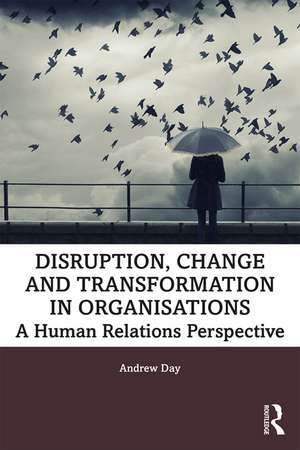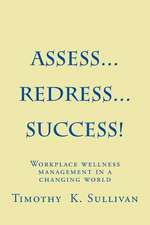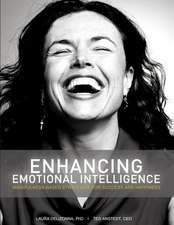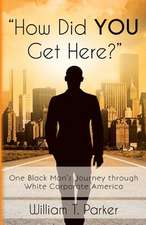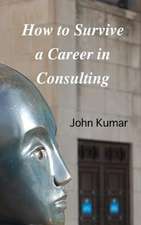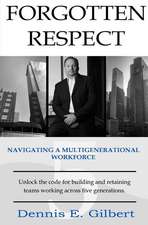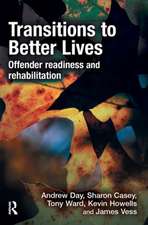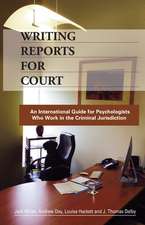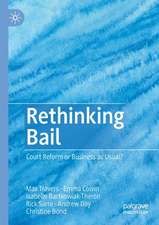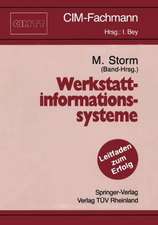Disruption, Change and Transformation in Organisations: A Human Relations Perspective
Autor Andrew Dayen Limba Engleză Hardback – 3 dec 2019
An organisation’s long-term survival increasingly rests on its adaptive capacity, ability to continuously change and transform itself. Yet, people experience ongoing and fundamental change to be disorientating and unsettling as it challenges accepted assumptions and identities. This book assists leaders and change practitioners understand these dynamics, help people to make sense of change and to create the conditions that enable people to self-organise and creatively adapt.
With case studies and personal accounts from individuals and companies, this is an ideal resource for practitioners and managers dealing with organisational change, as well as students, academics and researchers.
| Toate formatele și edițiile | Preț | Express |
|---|---|---|
| Paperback (1) | 278.46 lei 6-8 săpt. | |
| Taylor & Francis – 5 dec 2019 | 278.46 lei 6-8 săpt. | |
| Hardback (1) | 892.30 lei 6-8 săpt. | |
| Taylor & Francis – 3 dec 2019 | 892.30 lei 6-8 săpt. |
Preț: 892.30 lei
Preț vechi: 1088.17 lei
-18% Nou
Puncte Express: 1338
Preț estimativ în valută:
170.76€ • 178.05$ • 141.92£
170.76€ • 178.05$ • 141.92£
Carte tipărită la comandă
Livrare economică 20 martie-03 aprilie
Preluare comenzi: 021 569.72.76
Specificații
ISBN-13: 9780367253028
ISBN-10: 036725302X
Pagini: 194
Ilustrații: 21
Dimensiuni: 156 x 234 x 15 mm
Greutate: 0.48 kg
Ediția:1
Editura: Taylor & Francis
Colecția Routledge
Locul publicării:Oxford, United Kingdom
ISBN-10: 036725302X
Pagini: 194
Ilustrații: 21
Dimensiuni: 156 x 234 x 15 mm
Greutate: 0.48 kg
Ediția:1
Editura: Taylor & Francis
Colecția Routledge
Locul publicării:Oxford, United Kingdom
Public țintă
Postgraduate, Professional, Professional Practice & Development, and UndergraduateCuprins
Chapter 1 Introduction
Turbulent fields and organisation dynamics
Chapter 2 Dynamic complexity and disruption
Chapter 3 The transformation of organisational form
Chapter 4 Complexity, order and transformation
Chapter 5 Social networks and lost connections
Psycho-social dynamics in turbulent fields
Chapter 6 The disruption of human relations and boundaries
Chapter 7 Meaning and sense making in turbulent fields
Chapter 8 Altered Images: identity construction and fragmentation
Chapter 9 Loss, mourning and the inability to mourn
Chapter 10 Alienation, anomie and anxiety
Transformation, learning and adaptation
Chapter 11 Creativity, imagination and transformation
Chapter 12 Leading through disruption, change and turbulence
Chapter 13 Concluding thoughts
Turbulent fields and organisation dynamics
Chapter 2 Dynamic complexity and disruption
Chapter 3 The transformation of organisational form
Chapter 4 Complexity, order and transformation
Chapter 5 Social networks and lost connections
Psycho-social dynamics in turbulent fields
Chapter 6 The disruption of human relations and boundaries
Chapter 7 Meaning and sense making in turbulent fields
Chapter 8 Altered Images: identity construction and fragmentation
Chapter 9 Loss, mourning and the inability to mourn
Chapter 10 Alienation, anomie and anxiety
Transformation, learning and adaptation
Chapter 11 Creativity, imagination and transformation
Chapter 12 Leading through disruption, change and turbulence
Chapter 13 Concluding thoughts
Notă biografică
Andrew Day is an Organisation Development Consultant and Executive Coach who works with individuals, teams and organisations to support their development and growth. He is a partner with Metalogue Consulting.
Recenzii
"Leaders and consultants in organisational change across the world continue to work diligently with the best intentions, only to encounter one or more of disillusionment, disengagement and business failure. Deeper understanding of the dynamics at work and more effective approaches to facilitate change are urgently needed. This book delivers both, with practical insight based on rich experience and a deep grasp of theory and method. For any leader or change practitioner involved in the apparently intractable mess and anxiety of organisational change, this book could be the fresh breeze of sanity you crave." - Tom Kenward, Programme Director, Roffey Park Institute, UK.
"Andrew Day has done a superb, perhaps unique, job of integrating various fields of knowledge – psychology, sociology, social psychology, anthropology, philosophy, applied behaviour science - to expand his readers’ understanding of the disruptive effect change has on people's psychological state. Each chapter offers clear exposition of theories and concepts, backed up by illustrative stories which increase his readers’ desire to do things differently. Time has come for all of us to do our part to support not just organisations, but social networks and communities, in re-establishing a more connected, compassionate way of relating – to rebuild a stronger social fabric for human beings to thrive in this constantly changing world. No doubt that is Andrew’s purpose in writing this book." - L. Mee-Yan Cheung-Judge, BSc, MA, Ph.D., Fellow of Roffey Park Institute, UK.
"The time is right for this wonderful book. Never before has disruption been such a part of our lives, and never before has there been such a need for human connection and collaboration. This book points the way towards a place where that connection and collaboration might be truly possible. Not only is this needed at an organisational level to encourage generative work and commercial success but perhaps more importantly it is needed at an individual level to give us all a way of dealing with the alienation and anxiety disconnection brings." - Brian Marshall, Organisation and Change Discipline Lead, Hult Ashridge Executive Education, UK.
"Disruption, Change and Transformation in Organisations: A Human Relations Perspective is a deeply thoughtful synthesis of social psychology, leadership, organization theory and philosophy from someone who has been on the front lines of guiding significant organizational change. Issues of human identity and sense-making are the key ingredients that weave together both an understanding of why planned change is so difficult, and the many recommendations for how to do a better job of it. It is appropriate for use both in university courses, and by managers and consultants who want more than simplistic formulas." - Gervase R. Bushe Ph.D., Beedie School of Business, Simon Fraser University, Canada.
"Andrew Day has done a superb, perhaps unique, job of integrating various fields of knowledge – psychology, sociology, social psychology, anthropology, philosophy, applied behaviour science - to expand his readers’ understanding of the disruptive effect change has on people's psychological state. Each chapter offers clear exposition of theories and concepts, backed up by illustrative stories which increase his readers’ desire to do things differently. Time has come for all of us to do our part to support not just organisations, but social networks and communities, in re-establishing a more connected, compassionate way of relating – to rebuild a stronger social fabric for human beings to thrive in this constantly changing world. No doubt that is Andrew’s purpose in writing this book." - L. Mee-Yan Cheung-Judge, BSc, MA, Ph.D., Fellow of Roffey Park Institute, UK.
"The time is right for this wonderful book. Never before has disruption been such a part of our lives, and never before has there been such a need for human connection and collaboration. This book points the way towards a place where that connection and collaboration might be truly possible. Not only is this needed at an organisational level to encourage generative work and commercial success but perhaps more importantly it is needed at an individual level to give us all a way of dealing with the alienation and anxiety disconnection brings." - Brian Marshall, Organisation and Change Discipline Lead, Hult Ashridge Executive Education, UK.
"Disruption, Change and Transformation in Organisations: A Human Relations Perspective is a deeply thoughtful synthesis of social psychology, leadership, organization theory and philosophy from someone who has been on the front lines of guiding significant organizational change. Issues of human identity and sense-making are the key ingredients that weave together both an understanding of why planned change is so difficult, and the many recommendations for how to do a better job of it. It is appropriate for use both in university courses, and by managers and consultants who want more than simplistic formulas." - Gervase R. Bushe Ph.D., Beedie School of Business, Simon Fraser University, Canada.
Descriere
This book explores the enormous psychological and sociological impact of ongoing, turbulent and discontinuous change on organizations.
